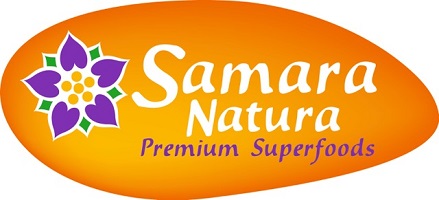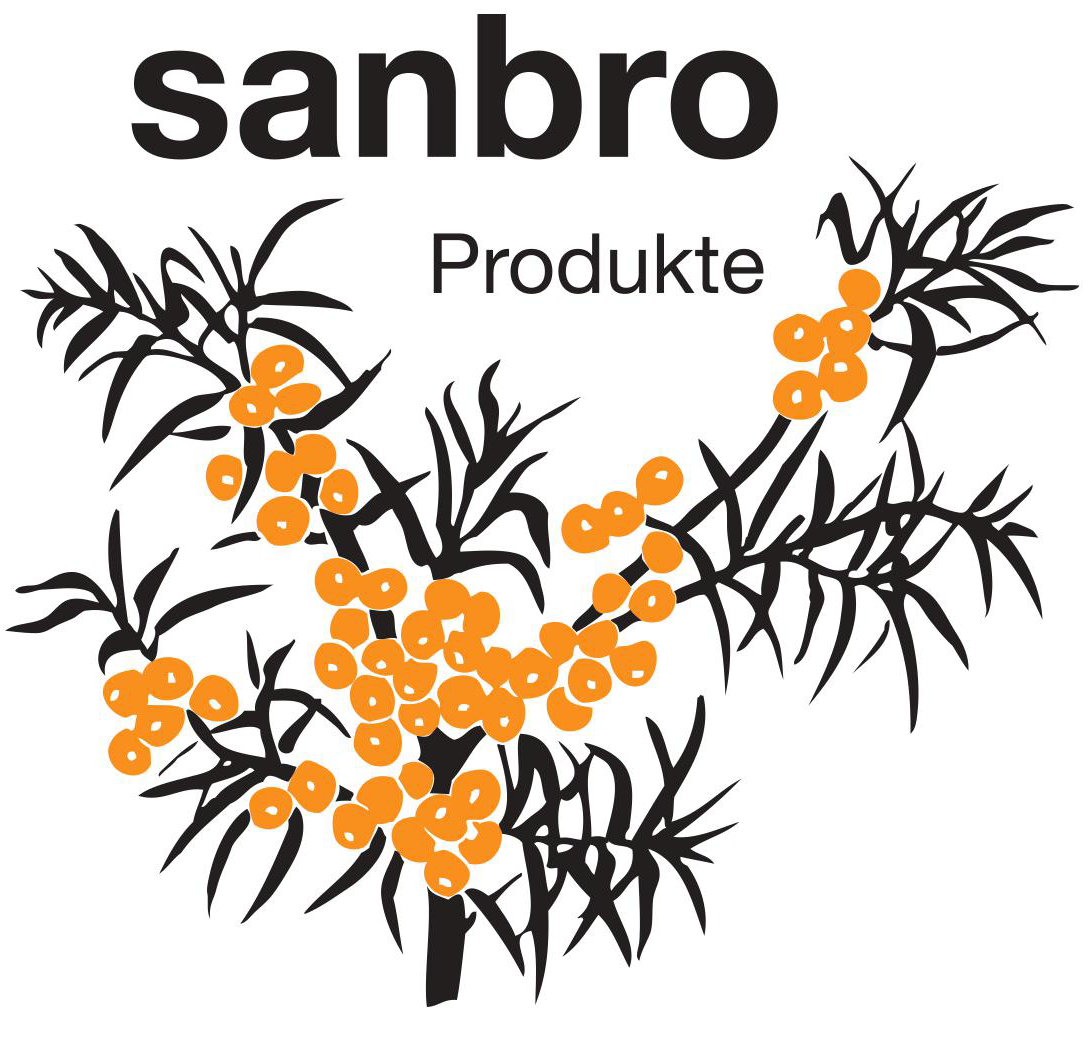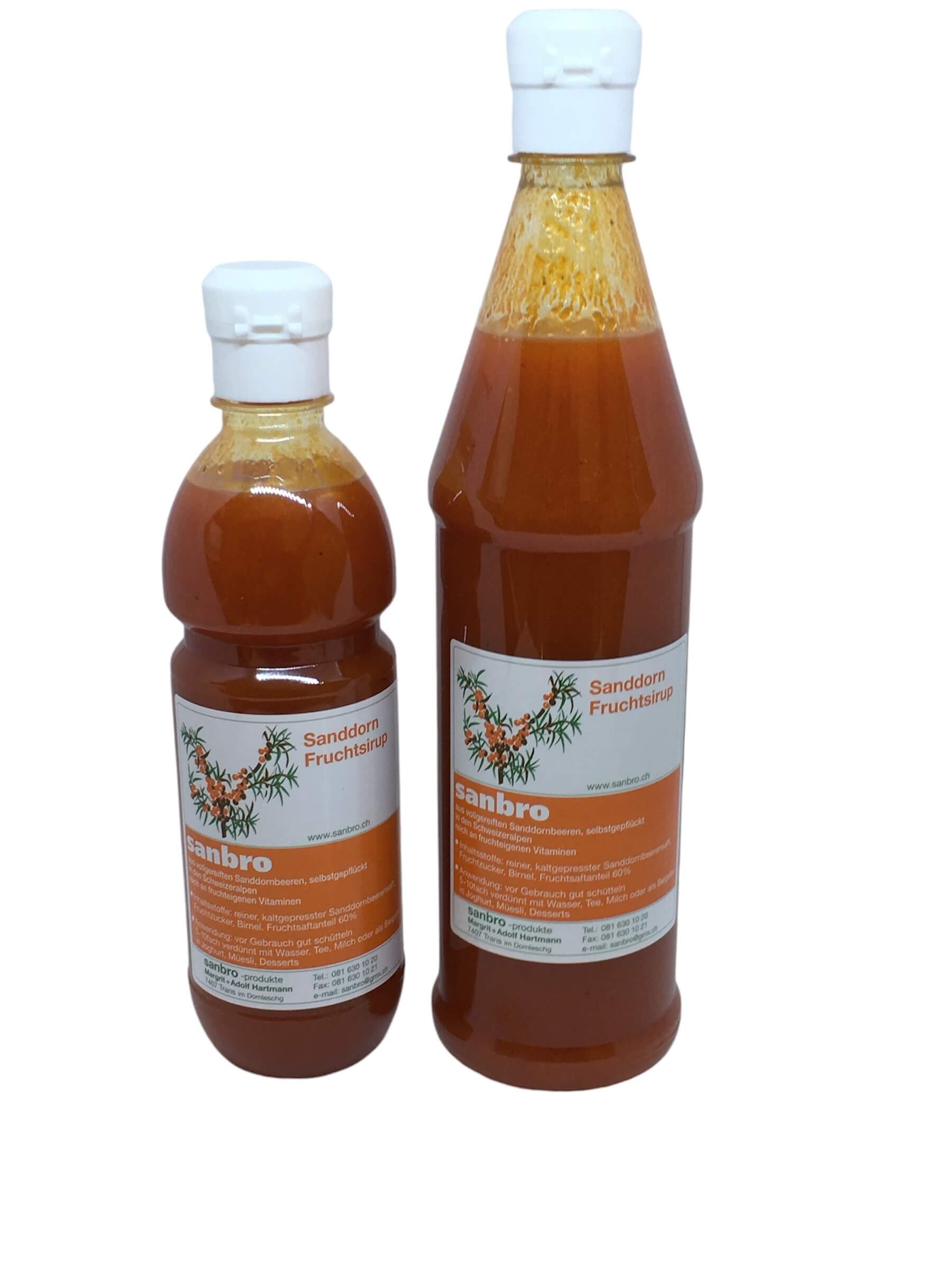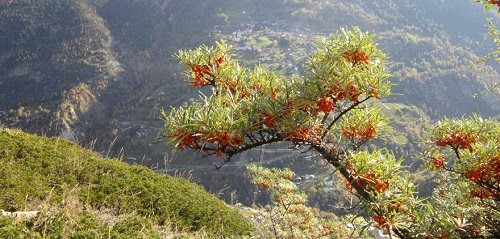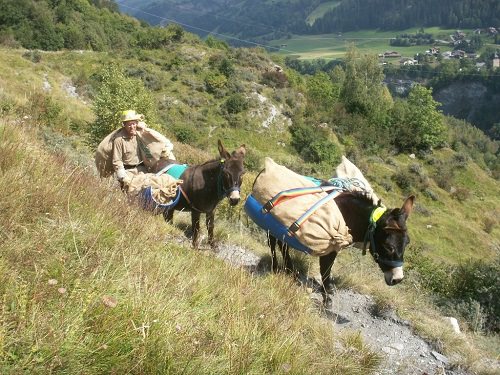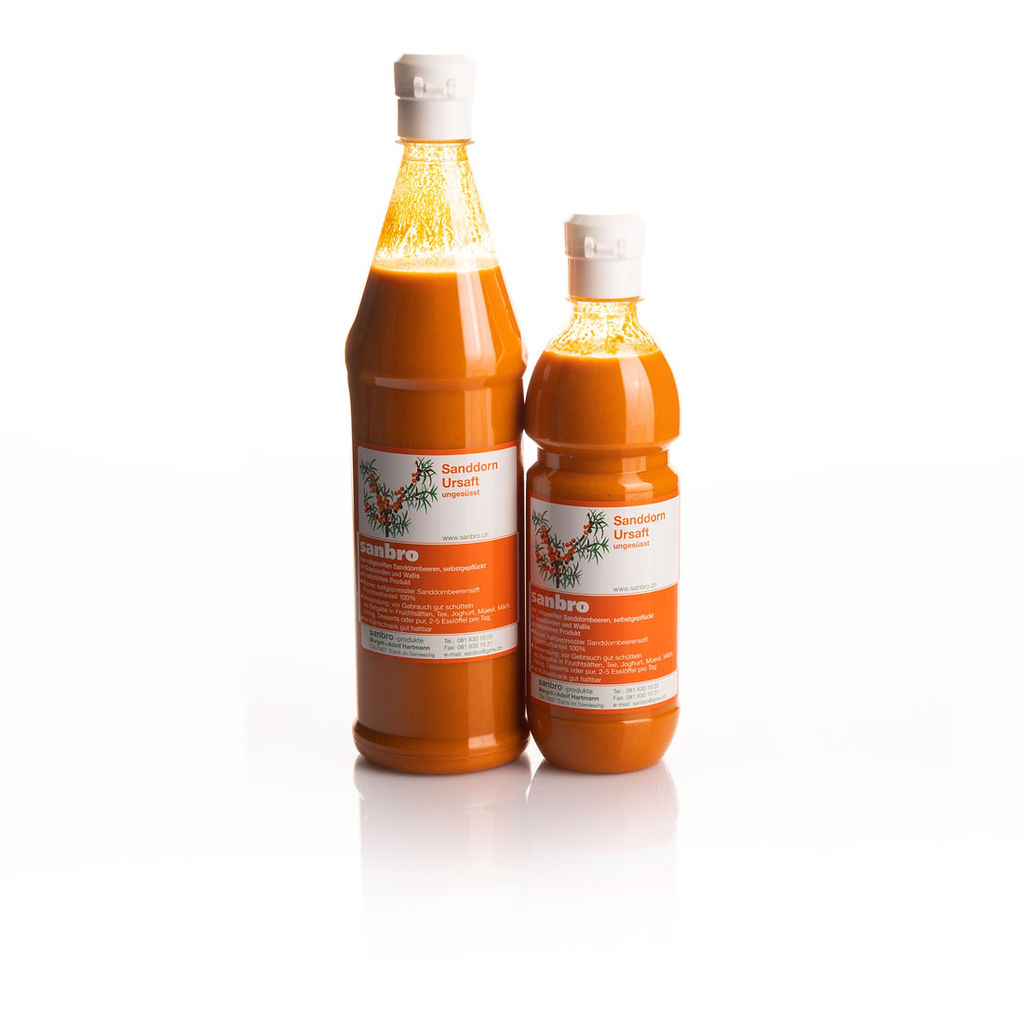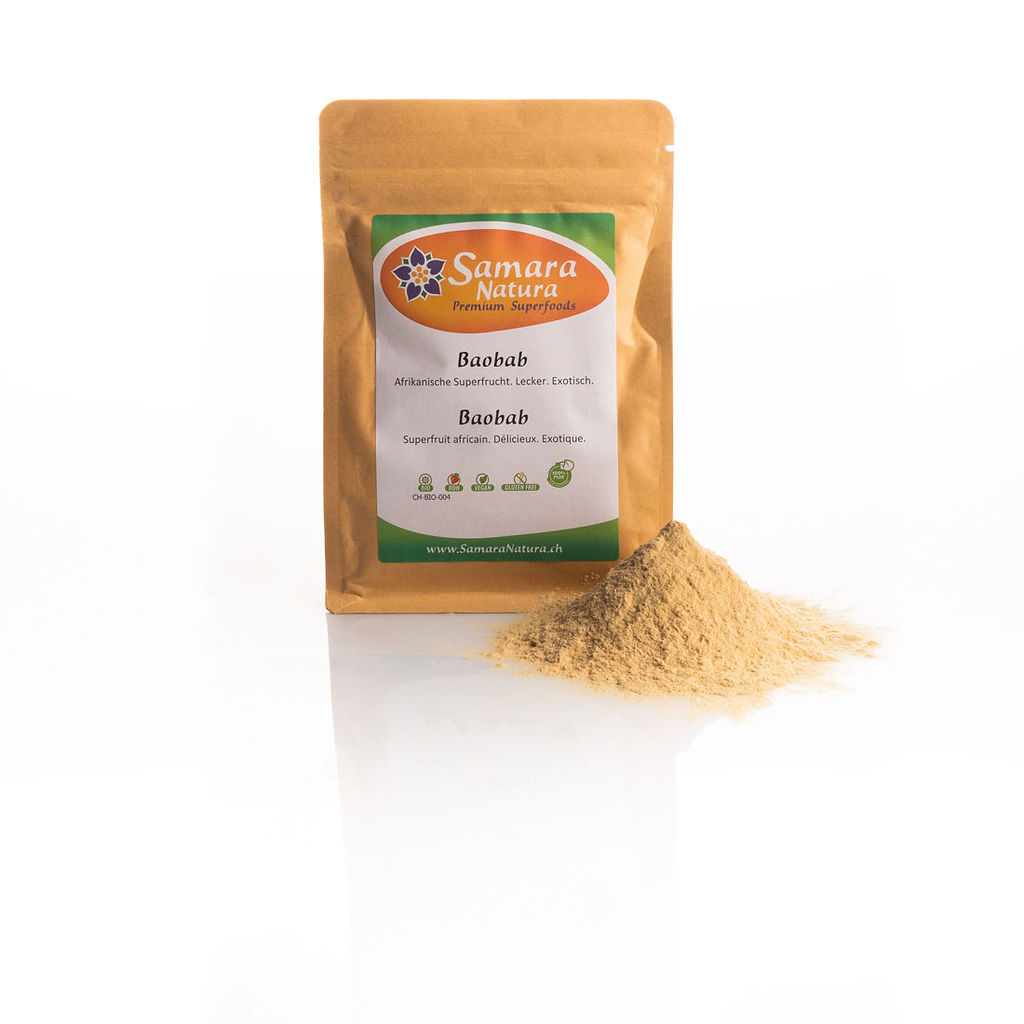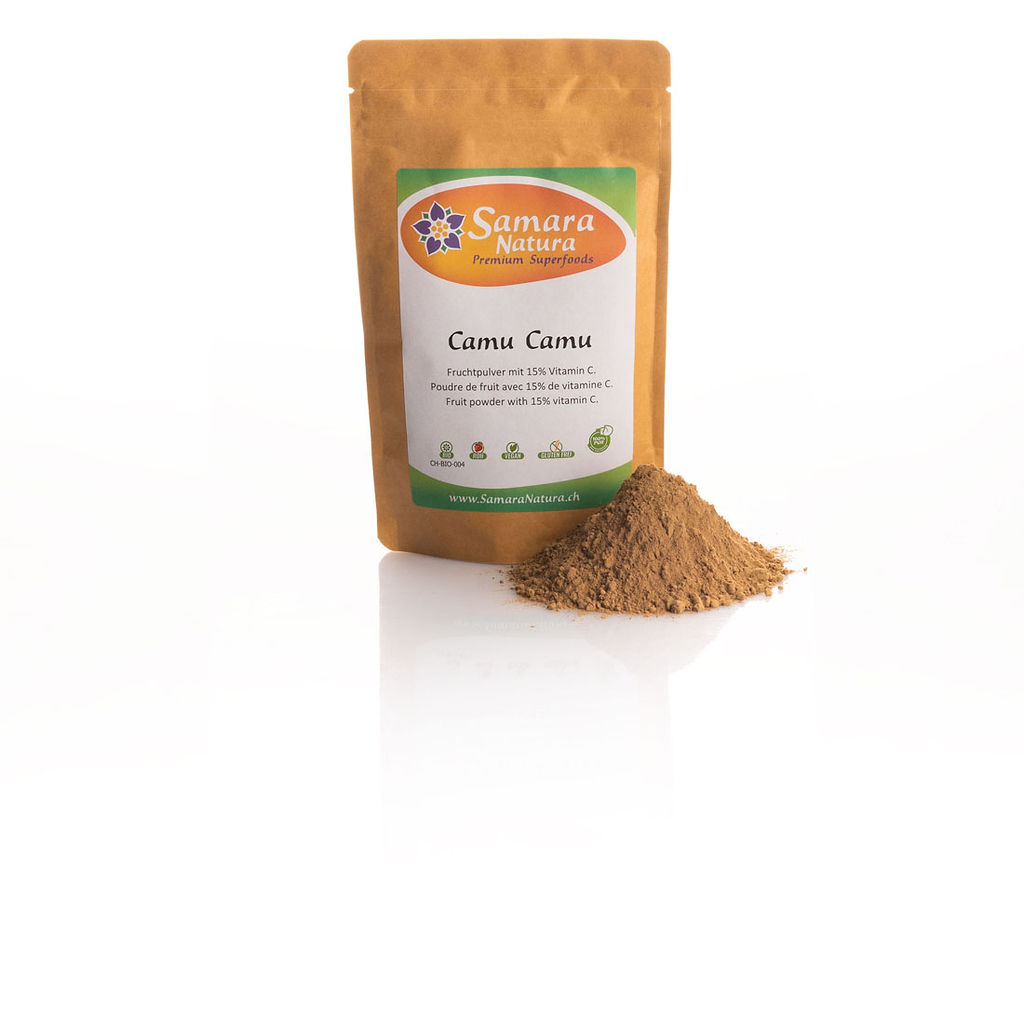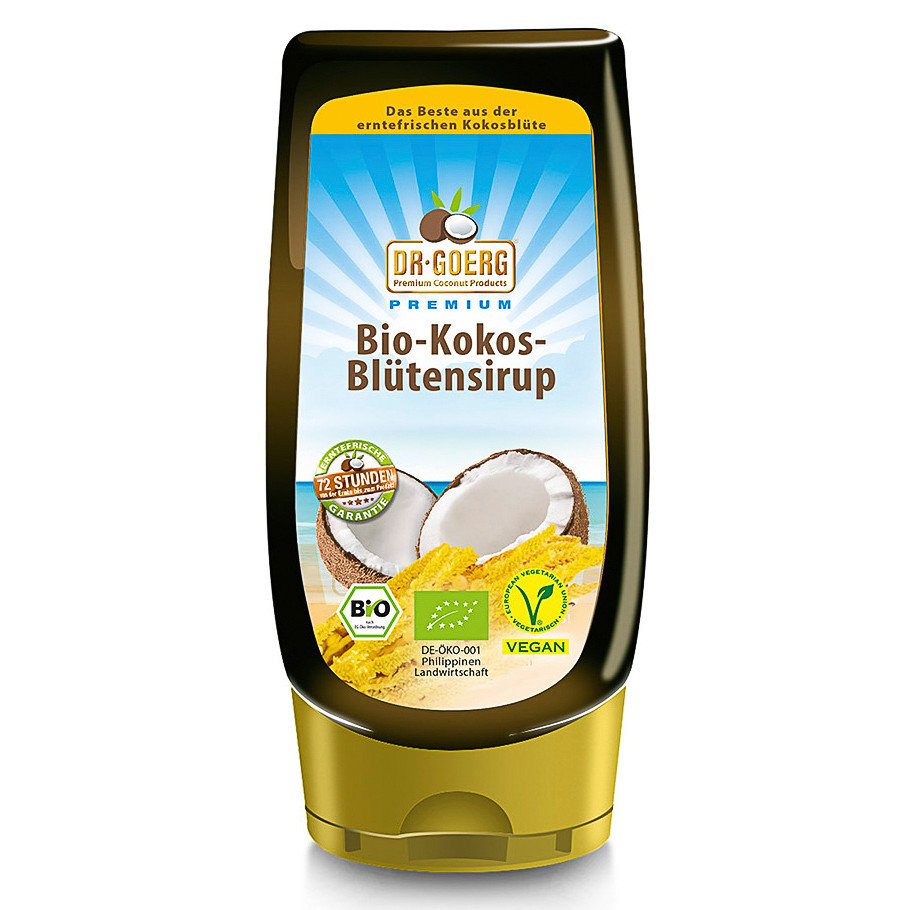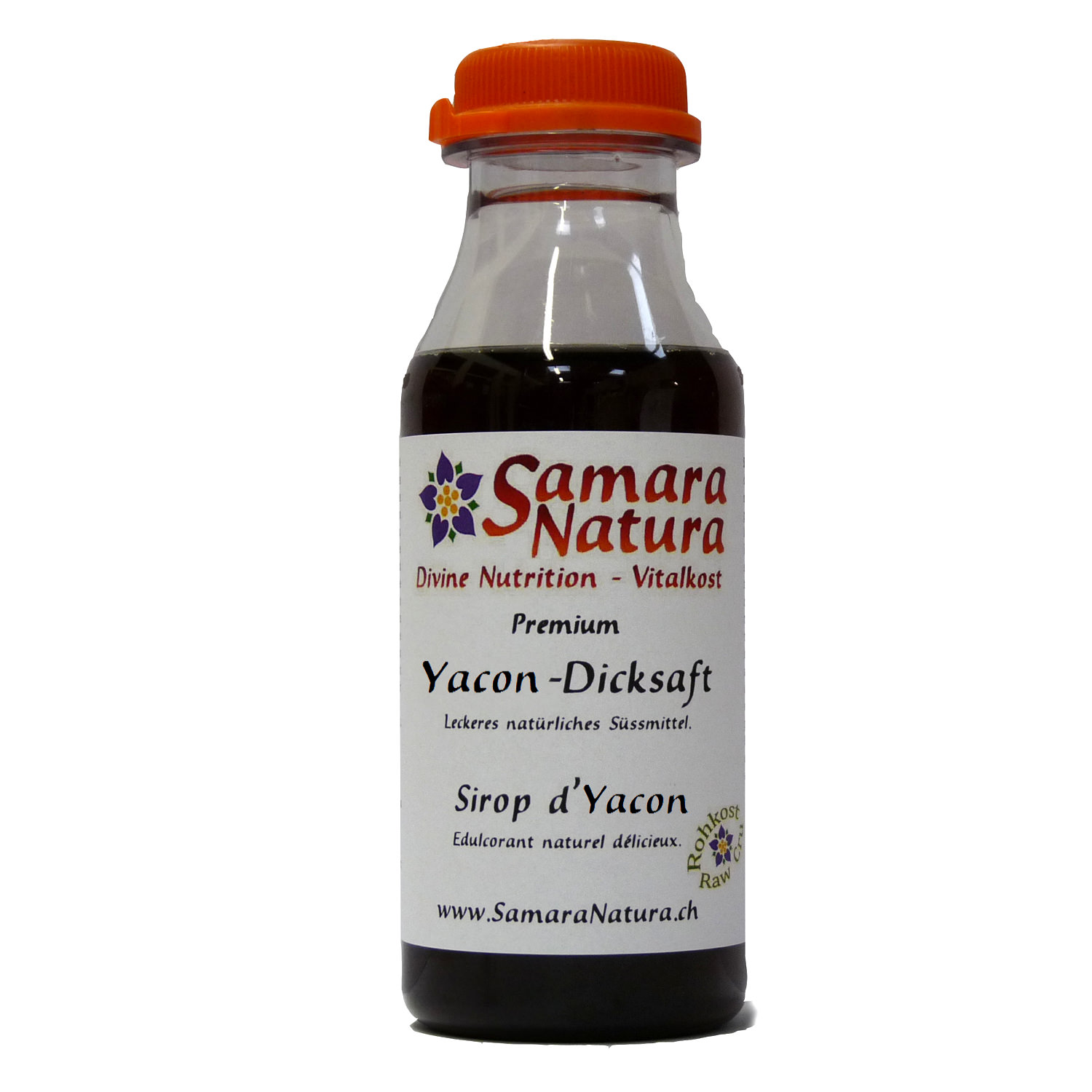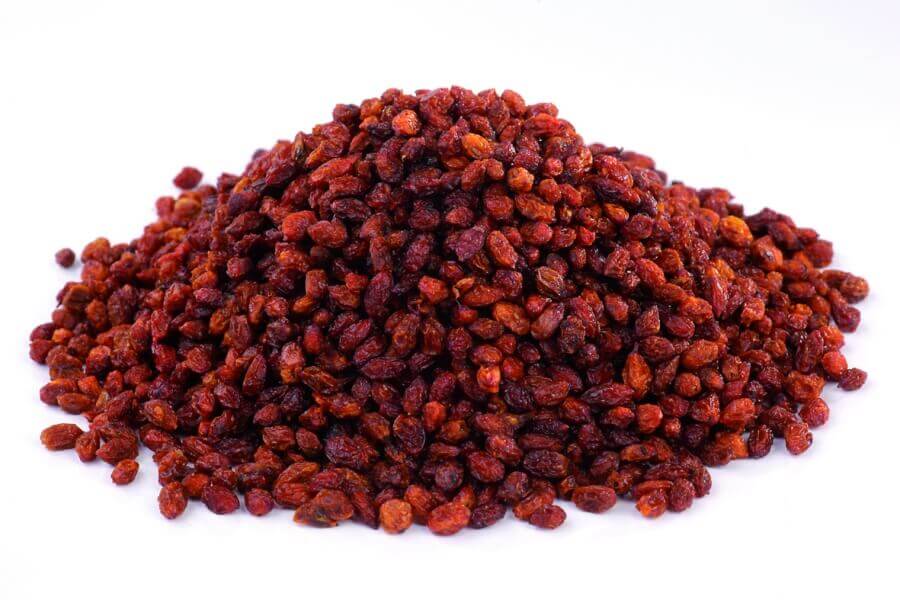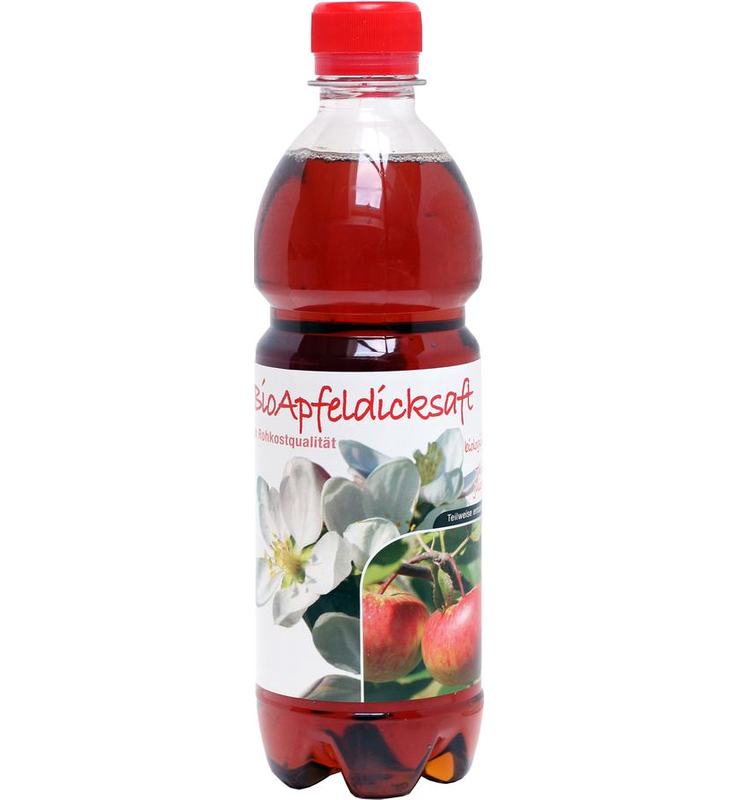| Quantity | Unit price | Base price |
|---|---|---|
| To 2 |
CHF 21.00*
|
CHF 3.23* / 100 Gramm |
| From 3 |
CHF 19.95*
|
CHF 3.07* / 100 Gramm |
Available, delivery time: 1-4 days
Product information "Swiss Sea Buckthorne Syrup"
Sea buckthorn syrup - from the berry richest in vitamin C in Europe
Harvested from wild sea buckthorn bushes in the Swiss Alps
The orange berries of the sea buckthorn bush, which are collected in the remote Swiss mountain valleys, are highly regarded by experts. The vital substance content is very high, especially vitamin C. The vitamin C content has been repeatedly tested by the manufacturer in Swiss test laboratories. These revealed vitamin C values of 18000 to 22000 mg/kg juice. Usual values for good plantation varieties are 3000 to 5000 mg/kg juice. This is 36 to 44 times more than that of fresh orange juice. The richness of all its ingredients is unrivalled. More than 12 vitamins: A, B1, B2, B5, B6, B12, C, E, F, H, P, PP, glycosides, flavonoids, saponins, omega-3, -6 and -9 fatty acids, fruit acids and mineral trace elements are contained in ripe sea buckthorn berries. Vitamin C is most effective in natural combination with other vital substances. Sea buckthorn juice also contains sea buckthorn pulp oil.
Sea buckthorn syrup in raw food quality
The whole berries are pressed very gently at low temperatures. The very high acidity - due to the high vitamin C content - and the clean processing mean that the juice does not need to be pasteurised and can be kept for at least 6 months. This preserves all the vital substances. The juice is very refreshing thanks to its vitamin C content and strong sea buckthorn flavour. The high vitamin P content supports the stability and absorption of vitamin C.
Harvesting and processing the berries to make sea buckthorn juice
The berries, which grow wild at around 1000 metres above sea level, are harvested by Margrit and Adolf Hartmann by hand in rough terrain in the Valais and Grisons Oberland. Compared to cultivated plants, these berries are smaller but richer in vitamins. Harvest time is between August and October. The berries and thorny branches are cut off with electric shears and placed in large jute sacks. The two donkeys "Fiona" and "Meli" help to carry the heavy sacks down into the valley. All the sea buckthorn berries are processed on the Hartmann couple's farm in Trans im Domleschg.
Sea buckthorn syrup or juice
In contrast to the original juice, which is completely unsweetened and very sour due to its very high vitamin C content, the sea buckthorn syrup is pleasantly sweetened with fructose and birnel. The sea buckthorn fruit content of the syrup is still 60%.
Note: The berries are wild fruits and are grown without pesticides or agrochemicals. However, due to the very large harvesting area, organic certification is not financially viable.
Use of Swiss sea buckthorn syrup
Sea buckthorn syrup tastes best when added to water, tea, yoghurt, muesli and desserts. Take 1 to 5 tablespoons a day, depending on your personal requirements.
Large varieties
Sea buckthorn syrup is available in both the 650g (equivalent to approx. 5dl) and the inexpensive 1kg (equivalent to approx. 7.5dl) bottle!
0 of 0 reviews
Average rating of 0 out of 5 stars
Login
These products might also interest you
Average rating of 4.9 out of 5 stars
Content: 500 ml (CHF 5.32* / 100 ml)
Average rating of 5 out of 5 stars
Content: 250 Gramm (CHF 8.02* / 100 Gramm)
Average rating of 5 out of 5 stars
Average rating of 5 out of 5 stars
Content: 350 Gramm (CHF 2.58* / 100 Gramm)
Average rating of 5 out of 5 stars
Content: 250 ml (CHF 8.74* / 100 ml)
Content: 125 Gramm (CHF 13.68* / 100 Gramm)
Content: 700 Gramm (CHF 2.77* / 100 Gramm)
Average rating of 4.9 out of 5 stars
Content: 250 Gramm (CHF 10.64* / 100 Gramm)
